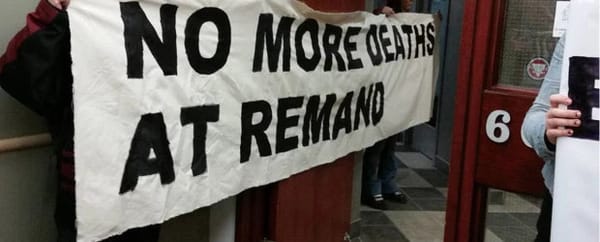Wednesday November 30th, 7pm - 9pm at Thunderbird House (715 Main street)
Free event, bus tickets available, wheelchair-accessible space, same-room child-minding available, please contact us with any questions: barnone.wpg@gmail.com or 204-599-8869. facebook: @ridestoprison
RVSP On Facebook: https://www.facebook.com/events/330814310635964/
Read More about the panel


